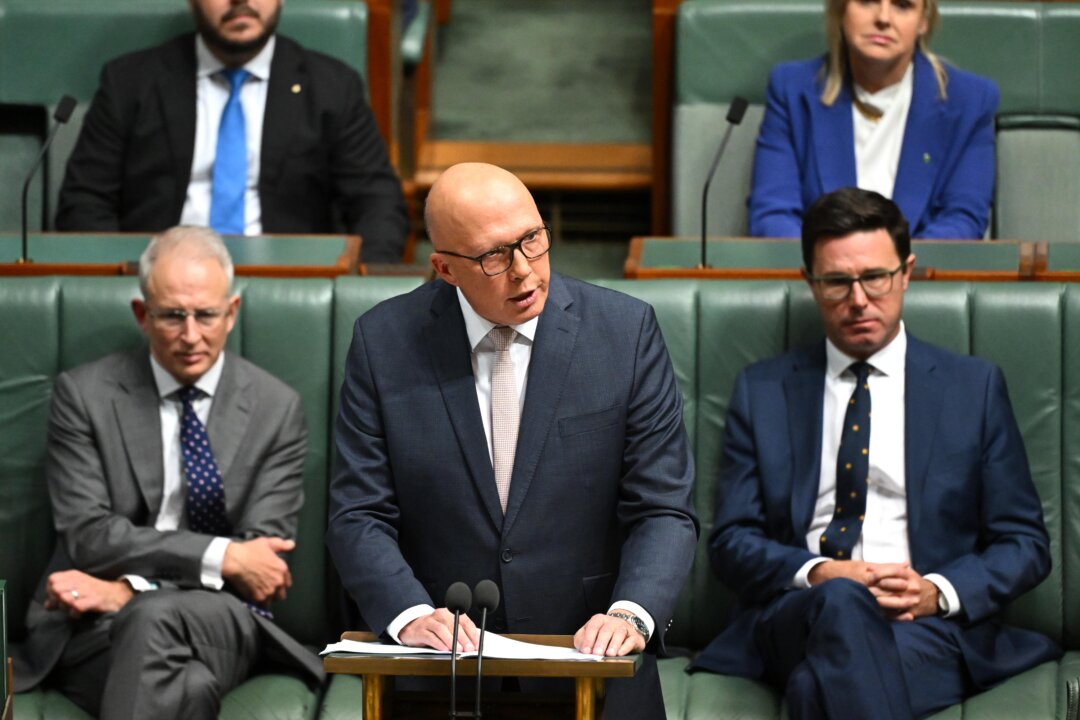Some Alberta municipal leaders have decried newly proposed legislation they say gives the provincial government sweeping new powers over municipalities, including greater power to change bylaws and remove mayors or councillors. Alberta’s Municipal Affairs Minister Ric McIver has said the province is acting within its legal responsibility to administer municipalities.
The legislation comes about five months after the province ousted the mayor of Chestermere, along with three councillors, citing prolonged dysfunction of the municipal government. Ontario made a similar move on April 29, removing the mayor and council of Black River.
Minister’s Response
“These are sweeping powers, but they’re not new,” Mr. McIver said on a Cross Border Interviews podcast aired April 30 about Bill 20. “Provinces have 100 percent constitutional authority over municipalities.”
Mr. McIver said the province can already use its constitutional power over municipalities when justified. But the new legislation is more about looking at the process of how it’s used. In the end, however, he said “cabinet still has to make a decision. That’s the same.”
He gave the example of the province stepping in when Edmonton imposed a mask bylaw during the pandemic. The government had already dropped masking mandates at the time, and it quickly introduced legislation to block the city’s bylaw in March 2022.
He said the province had the power to wind back that bylaw, but he questions what would have happened if the legislature hadn’t been in place at the time. It could have taken months for the province to exercise this power if such an issue arose in the summer. The mask mandates are health matters, which is an area of provincial jurisdiction.
Mr. McIver told The Epoch Times via email the powers in Bill 20 “would only be used in very limited circumstances, related to areas that are primarily overseen by the province, such as health care, education, and the provincial economy.”
He said any actions his government takes would be tempered by the fact that they would be scrutinized by the public and pay a political price if there are any missteps.
Concerns About ‘Power Grab’
Tyler Gandam, mayor of Wetaskiwin and president of Alberta Municipalities, says the new proposed legislation is a “power grab.”
“Bill 20 sets a dangerous precedent for future governments of all political stripes,” Mr. Gandam said at a press conference on April 29.
“The bill reduces the autonomy and authority of a recognized order of government; your local government. It also undermines the power of the local voter. Alberta Municipalities is concerned that the bill will intimidate and even silence legally elected officials who dare to criticize the provincial government.”
His concerns also include that cabinet secrecy means the provincial government may never have to reveal why they have made decisions under the new legislation. The bill has few details on the criteria for repealing bylaws, saying only that the province may “make regulations directing a municipality, with or without conditions, to amend or repeal a bylaw.”
It also says the province may require a city council to take “any action” deemed “necessary in the circumstances to protect public safety or health.”
The bill changes elections rules, including reintroducing corporate and union donations to municipal candidates. “If the bill passes in its current form, local government elections will end up being about what influential corporations and unions want, not about what voters want,” Mr. Gandam said.
The bill would also have political parties run in municipal elections, only in Calgary and Edmonton to start. “Independent candidates risk being outspent and drowned-out by party candidates who enjoy the financial backing of corporations and unions,” Mr. Gandam said.
What Else the Bill Does
Bill 20 would also have ballots counted by hand rather than electronically and would make changes to the recall process. Edmonton Mayor Amarjeet Sohi has criticized this move, saying it will cost cities millions more.
“Our electronic tabulation system has worked really well and no one has raised any concerns with it,” Mr. Sohi told reporters on April 26. Reverting to hand-counting “is going to cost millions of dollars,” he said.
While there haven’t been any problems documented around electronic ballot counting, Mr. McIver said, many Albertans distrust the machines.
Efforts to recall Calgary Mayor Jyoti Gondek failed recently, not garnering the 514,000 signatures needed within 60 days. Mr. McIver said new rules around recalls will be discussed with stakeholders over the next few years. Given the election cycle, no new recall could be submitted until three years from now anyway. He thinks the threshold number of signatures needed is too high for big cities.
Motivations
Marco Navarro-Génie, president of the Alberta-based think tank Haultain Research Institute, says the recent experience with Chestermere may have been part of the motivation to come out with Bill 20 now.
When the province removed the mayor and some councillors in December last year, Mr. McIver said, “The city left me no other reasonable choice. I cannot and will not allow a municipality in Alberta to continue to be managed in an irregular, improper, and improvident manner.”
The province had launched an inspection in 2022 following complaints from Chestermere citizens and city employees. The inspection found several aspects of city management deemed to be “improper and irregular,” including how council treated city staff, its hiring and firing practices, and late filing of audited financial statements. The inspection report listed altogether 25 instances mismanagement and 17 legislative infractions.
Ultimately, Mr. McIver chose to remove the city officials because, he said, they did not comply with 12 binding directives issued by his office after the inspection and they did not cooperate with an appointed provincial administrator. He kept three councillors in place, saying they tried to move the city in a more positive direction.
Ousted mayor Jeff Colvin and ousted councillors Mel Foat, Blaine Funk and Stephen Hanley made allegations of a lack of “procedural fairness” and took the minister to court. A court ruled against their bid for reinstatement.
“That became a very messy process,” Mr. Navarro-Génie said. That, combined with past controversies around municipal campaign financing may have been enough to motivate Alberta to put this bill together, he said.
“When you combine those two, there are probably enough elements there to include them in a bill and put them together and see, while you’re doing that, what else needs a facelift,” he said.













 English (US) ·
English (US) ·  Turkish (TR) ·
Turkish (TR) ·